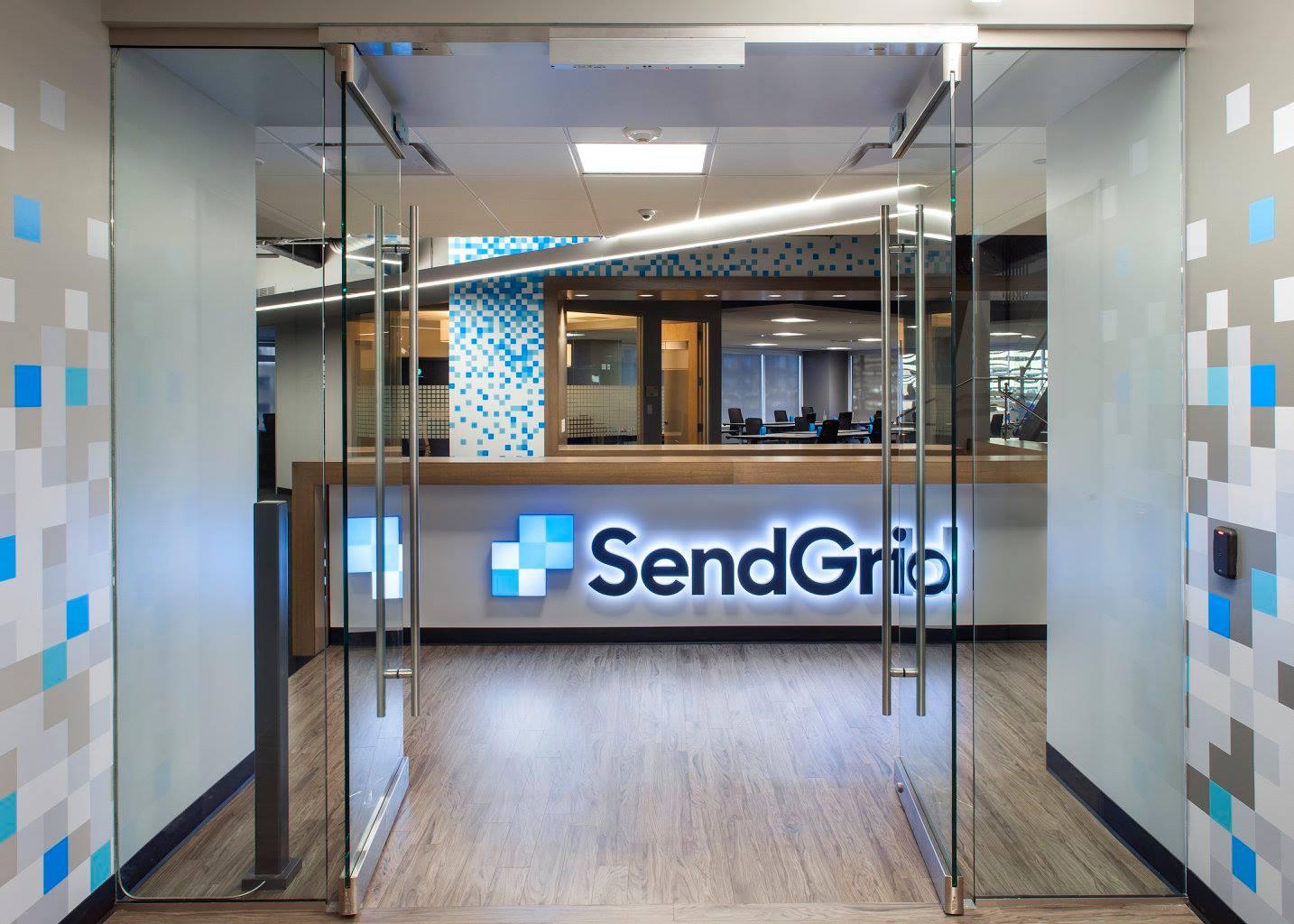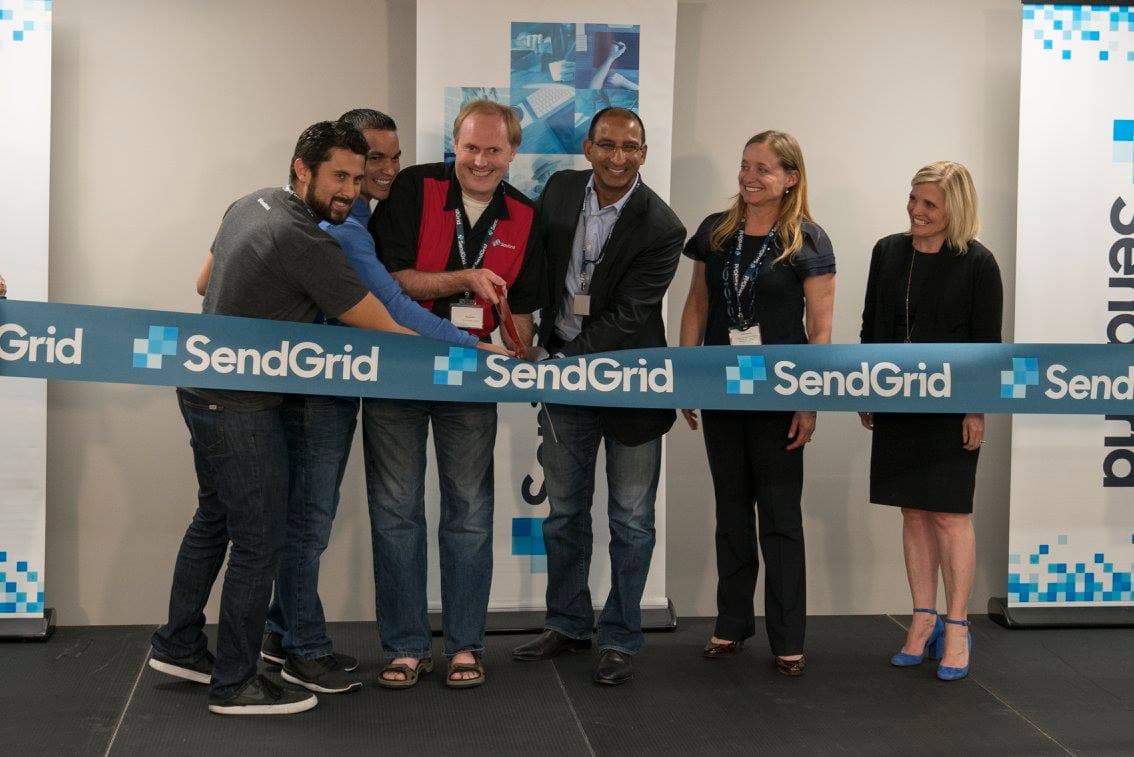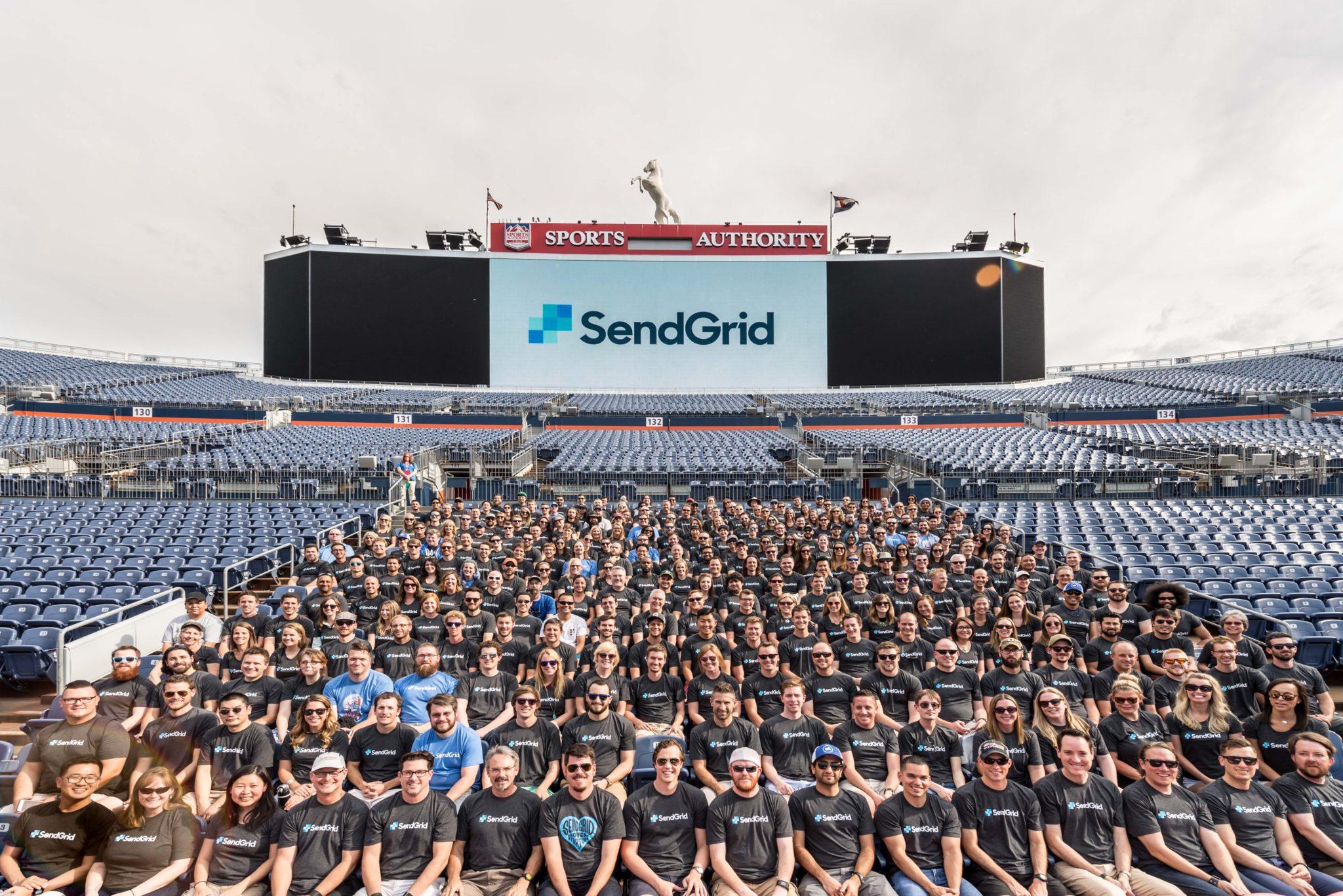
From humble beginnings as a Boulder TechStars graduate back in 2009, SendGrid has emerged as a national force in the the cloud-based software industry.
Now, at the end of a very impressive 2016 for the Denver-based company, it's looking ahead to what could be its best year to date, with implications not only for SendGrid, but for the entire Front Range tech scene.
Within the past year, the software company was named one of the Colorado Office of Economic Development's “Denver Gazelles," completed a high-profile relocation from Boulder to Denver, made Forbes' new list of 100 cloud-based companies and raised a whopping $33 million in series D funding for a total of $80.36 million in its seven years.
In 2017, executives expect revenue to surpass $100 million and hope for an IPO in the second half of the year. Within the next few years, they aspire to reach $1 billion in value.
If SendGrid meets those lofty goals, it could join the growing list of Front Range "unicorns" -- or startups that reach $1 billion in value -- and perhaps stand out as the most inherently "Colorado" company of them all.
You've almost definitely received SendGrid-powered emails.
Whether you've heard of them or not, they've probably touched your inbox. Uber, Spotify, Glassdoor, AirBnb, Yelp and Nextdoor are among SendGrid's 120,000 customers. In service of those customers, the software company sends on average 30 billion emails per month and hopes to break $100 million in revenue in 2017.
SendGrid was founded in 2009 by Tim Jenkins, Jose Lopez and Isaac Saldana to help businesses that send tons of emails.

SendGrid is an email delivery engine that allows clients to manage email without the cost and labor requirements of maintaining in-house email servers. In addition to sending, SendGrid manages real-time analytics, scaling and internet service provider outreach.
Natty Zola, managing director of Techstars Boulder said he met the founders of SendGrid back in 2009, when his own startup, Everlater, was going through the accelerator.
"The founders really deeply understood the problem they were solving. They had experienced it for years," Zola said. "They were able to speak the same language as their customers."
The startup has reaped the benefits of being a Colorado company.
SendGrid CMO Scott Heimes credits the success mostly to the team and its very Colorado "4H" ethos: happy, honest, hungry and humble.
"It's all about the people. We have been able to hire and attract awesome employees to build great things," he said. "It was founded out of the first Techstars class in Boulder. That incubator really birthed SendGrid."
Zola says SendGrid made good use of the Colorado tech scene's spirit of collaboration.
Many major players like Brad Feld of the Foundry Group, who invested in SendGrid, Boulder-based incubator Techstars, as well as the many entrepreneurs who make up the fabric of the Colorado tech ecosystem, have put in time and effort to providing resources and support for other entrepreneurs.
"The founders were receptive to mentorship, coaching and advice. They surrounded themselves with people who wanted them to succeed, helped them in the process," Zola said. "They were successful because they built this community around them."
And that community, as well as Denver's very supportive programs, high quality of life and comparatively low cost of living is what keeps drawing more entrepreneurs to the area -- to the delight of companies like SendGrid, where Heimes says the biggest challenge is continuing to hire outstanding talent.

A year is a long time -- and a lot can happen.
There's no doubt SendGrid has positioned itself well and has many promising prospects, but Brad Bernthal, who works as an associate law professor at CU Boulder and founded the Silicon Flatirons Center's Entrepreneurship Initiative, is remaining cautiously optimistic.
In terms of valuation, incoming investors care only about the valuation at the time of liquidity, rather than ongoing valuation -- meaning SendGrid will need consistent growth without any major mishaps along the way to confidently go public.
"Anytime you are looking out almost a year in advance, there are so many things at play," Bernthal said. "The company has to continue to have great growth, you have to be in a market sector that the market likes and you cant have macro events that effectively shut down the public market."
Uncertainty aside, a high value exit will mean a lot for the Front Range.
The Front Range has had unicorns before – for example, Zayo and Datalogix – but they haven't been quite as publicly hailed. SendGrid's been garnering a lot of attention due to its major ties in the Denver/Boulder scene.
For one, they are involved in software, which is about as wired into the tech scene as can be. They also came out of Techstars and are backed by one of the highest profile venture capital firms in the Front Range, Foundry Group.
"SendGrid's like the ballplayer that started in the minor leagues and now might be a big-leaguer. Everyone's going to claim this as their own success if it works," Bernthal said.
It could be a win/win/win.
When a high-value company achieves liquidity, it sends a signal to the world that a company can startup and scale up within a certain region. And since SendGrid is so plugged into the local scene, an exit for SendGrid would be an especially good indicator of the Front Range's strength.
In a best-case scenario for the region's tech scene, investors in places like Silicon Valley and New York might identify a trend of strong companies coming out of Denver and Boulder and have more incentive to invest in companies there. The status could show the next generation of entrepreneurs, managers and creative talent that they can live in Colorado and build a world-class company, Bernthal said.
Aside from an influx of new talent and investment, a unicorn would produce a generation of newly wealthy potential investors and entrepreneurs with ties to Denver and Boulder. Some could become angel investors biased toward regional investments.
Plus, it's a nice little pat on the back for early-stage investors who could demonstrate that they make smart decisions with their money.
But just as SendGrid isn't the first successful company to come out of the Front Range, it likely won't be the last. If you're looking for other promising companies who have potential to join the fabled unicorn ranks, Bernthal said Boulder-based LogRhythm and SomaLogic could both be on their way.
Multimedia business & healthcare reporter Chloe Aiello can be reached via email at [email protected] or twitter.com/chlobo_ilo.
Subscribe to Denverite’s newsletter here.













